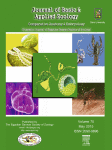
Journal of Basic and Applied Zoology
Scope & Guideline
Innovating insights in basic and applied zoology.
Introduction
Aims and Scopes
- Ecophysiology and Environmental Stress:
Research on how environmental factors like climate, pollution, and habitat changes affect the physiological responses of various animal species. - Conservation and Biodiversity:
Studies aimed at understanding species diversity, community structure, and conservation strategies, especially in changing environments. - Molecular and Biochemical Studies:
Investigations into genetic, molecular, and biochemical processes in animals, including studies on gene polymorphism and the effects of dietary supplements. - Insect and Pest Management:
Focused research on the management of insect pests and vectors, exploring biological control methods, insect physiology, and toxicological assessments. - Aquaculture and Fisheries Research:
Research contributing to the fields of aquaculture and fisheries, including the study of fish health, nutrition, and environmental impacts on aquatic species. - Parasitology and Disease Studies:
Examinations of parasitic infections in wildlife and domesticated animals, exploring their epidemiology, impact on health, and potential treatments.
Trending and Emerging
- Impact of Climate Change on Fauna:
Research addressing how climate change is affecting species distributions, physiological responses, and community structures is gaining traction, highlighting the urgent need for understanding these dynamics. - Functional Genomics and Biotechnology:
An increase in studies utilizing molecular biology techniques to explore genetic variations and their implications for animal health, including gene polymorphism and biotechnological applications. - Health and Nutrition in Animal Husbandry:
Growing interest in the nutritional aspects of animal health, particularly in aquaculture and livestock, focusing on the effects of dietary supplements and natural products. - Ecotoxicology and Environmental Health:
A rise in studies assessing the impact of pollutants and chemicals on wildlife, particularly in aquatic environments, reflecting increased awareness of environmental health issues. - Integrated Pest Management Strategies:
Emerging research on sustainable pest management practices that incorporate biological control, environmental considerations, and pest resistance management.
Declining or Waning
- Traditional Taxonomy:
Research focusing solely on classical taxonomic studies appears to be less frequent, as the field shifts towards integrative approaches that combine molecular data with traditional methods. - Invasive Species Studies:
While still relevant, the frequency of studies specifically dedicated to invasive species management seems to have decreased, possibly due to a broader focus on ecosystem health and conservation. - Historical Zoological Studies:
There seems to be a waning interest in purely historical analyses of animal populations or species, with researchers increasingly focusing on contemporary ecological and physiological studies.
Similar Journals

CANADIAN JOURNAL OF ZOOLOGY
Bridging Theory and Practice in Zoological ResearchWelcome to the Canadian Journal of Zoology, a leading academic journal in the fields of Animal Science and Zoology as well as Ecology, Evolution, Behavior and Systematics. Published by Canadian Science Publishing since 1965, this esteemed journal serves as a vital platform for researchers, professionals, and students to disseminate and engage with significant findings in zoological and ecological research. With an impact factor placing it in the Q2 category and rankings reflecting its influence (201/490 in Animal Science and Zoology; 372/721 in Ecology), the journal is committed to advancing the understanding of animal biology and environmental interactions. Although currently not an open access publication, it provides comprehensive resources and studies that are crucial for the academic community. Based in Ottawa, Canada, the journal continues to push the boundary of knowledge right up to 2024 and beyond, making it an essential resource for anyone dedicated to the life sciences.

REVISTA DE BIOLOGIA MARINA Y OCEANOGRAFIA
Connecting Scholars to the Wonders of the SeaREVISTA DE BIOLOGIA MARINA Y OCEANOGRAFIA is a prominent academic journal dedicated to the fields of marine biology and oceanography, published by the Faculty of Marine Sciences and Natural Resources at Universidad de Valparaíso, Chile. Since its inception in 1996, this journal has been a vital platform for disseminating research findings and advancements in aquatic sciences, covering a breadth of topics relevant to the marine environment. With its current impact positioned within the Q4 quartile of both Aquatic Science and Oceanography categories in 2023, the journal serves as an essential resource for scholars, practitioners, and students alike, aiming to enhance their understanding of marine ecosystems. While the journal does not provide open access options, it continues to contribute valuable insights, helping to foster a deeper appreciation for oceanographic science and marine biodiversity. Located in the scenic city of Viña del Mar, Chile, this publication invites manuscripts that push the boundaries of knowledge and stimulate discourse within the marine sciences community, thereby promoting sustainable management and conservation of oceanic resources.
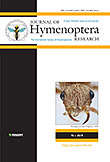
JOURNAL OF HYMENOPTERA RESEARCH
Fostering Innovation in Animal Science and EcologyJOURNAL OF HYMENOPTERA RESEARCH is a leading open-access publication dedicated to the advancement of knowledge in the fields of Insect Science, Animal Science and Zoology, and Ecology. Published by Pensoft Publishers since 2011, this journal plays a critical role in facilitating the exchange of significant research findings and insights related to Hymenoptera, a diverse order of insects that includes bees, wasps, and ants. With a commendable impact factor and ranked in the Q1 category for Insect Science and Animal Science, the journal stands out within the scientific community, drawing contributions from researchers globally. Boasting an ISSN of 1070-9428 and an E-ISSN of 1314-2607, the journal not only ensures broad accessibility to its content but also fosters a collaborative environment for professionals and students alike to engage with pioneering research. By reflecting on the converged years of 2007-2024, the JOURNAL OF HYMENOPTERA RESEARCH remains a vital resource for understanding the ecological and evolutionary dynamics of this important group of insects, solidifying its position as a cornerstone in entomological studies.
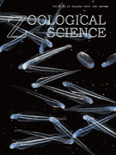
ZOOLOGICAL SCIENCE
Fostering Conservation Through Scholarly ExchangeZoological Science, published by the Zoological Society of Japan, is a leading journal dedicated to the fields of animal science and zoology. With its ISSN 0289-0003, this respected publication has established itself as a prominent source of scientific research, attaining a commendable Q2 ranking in the 2023 category of Animal Science and Zoology. Spanning over three decades, from 1992 to 2024, the journal offers a valuable platform for scholarly articles that explore various aspects of zoology, including ecology, behavior, and evolutionary biology. Although it operates under a traditional subscription model, its contributions are supported by a robust community of researchers and professionals who value its insights. The journal strives to foster academic discourse and insights that drive understanding and conservation of wildlife, making it an essential resource for students and established experts alike. The publishing headquarters located in Tokyo, Japan, further enhances its international reach and influence in zoological studies.
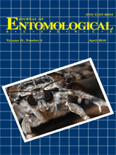
JOURNAL OF ENTOMOLOGICAL SCIENCE
Advancing Knowledge in Entomology and EcologyJOURNAL OF ENTOMOLOGICAL SCIENCE, published by the Georgia Entomological Society Inc, is a crucial resource in the field of insect science and ecology. With a rich history since its inception in 1993, the journal provides a platform for innovative research and comprehensive reviews addressing various aspects of entomology. Although not an open-access journal, it is highly regarded within its community, holding a Q3 ranking in Agronomy and Crop Science, Ecology, Evolution, Behavior and Systematics, and Insect Science as of 2023. Each issue promises to contribute valuable insights to professionals, researchers, and students alike, making it an essential publication for those looking to stay abreast of developments in entomological studies. The journal's editorial commitment ensures that it remains at the forefront of entomological research through rigorous peer reviews and a dedication to scholarly excellence.

JOURNAL OF INSECT SCIENCE
Fostering Innovation in Insect ResearchJOURNAL OF INSECT SCIENCE, published by OXFORD UNIV PRESS INC, stands as a pivotal platform in the field of insect science, offering open-access research since 2001. With an impactful presence in the academic community, this journal spans the convergence of entomology and various interdisciplinary studies, establishing itself in the Q2 quartile for both Insect Science and Medicine (miscellaneous) categories as of 2023. This esteemed journal is recognized for its contributions to the understanding and management of insect biology, ecology, and their implications for agriculture and human health, garnering a Scopus rank of 44 out of 181 in Agricultural and Biological Sciences. The Open Access model encourages wide dissemination of knowledge, making the rich repository of research accessible to a global audience. With ongoing publications until 2024, JOURNAL OF INSECT SCIENCE serves as an essential resource for researchers, professionals, and students seeking to deepen their understanding of the crucial role insects play in our ecosystem.
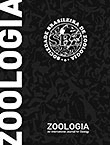
Zoologia
Unlocking the Secrets of BiodiversityZoologia, published by the SOC BRASILEIRA ZOOLOGIA and UNIV FEDERAL PARANA, is a premier open-access journal dedicated to the field of zoology and related disciplines. Established in 2009 and based in Brazil, this journal has quickly positioned itself as a vital resource for researchers, professionals, and students, providing a platform for innovative research and comprehensive reviews in animal science and zoology. With an H-index indicative of its growing citation impact and a current Scopus ranking placing it in the 46th percentile of its category, Zoologia focuses on increasing the visibility and accessibility of cutting-edge zoological research. The journal aims to advance the understanding of animal biology, ecology, and conservation, making it an essential read for those invested in animal science. As an open-access publication, it ensures that knowledge dissemination is unrestricted, fostering a collaborative scientific community striving towards impactful conservation and biodiversity initiatives.
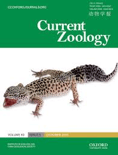
Current Zoology
Your Gateway to Innovative Zoological DiscoveriesCurrent Zoology, published by Oxford University Press, is a leading open-access journal dedicated to advancing the field of zoology and animal science since its establishment in 2009. With an impressive Q1 ranking in Animal Science and Zoology as of 2023, the journal maintains a prominent position within the academic community, supported by a ranking of #138 out of 490 in Scopus. Current Zoology serves as a vital platform for researchers, professionals, and students, showcasing high-quality research that spans a broad array of topics within the domain of zoology. This journal is characterized by its rigorous peer-review process, ensuring the dissemination of credible and impactful findings that contribute to the understanding of animal biology and conservation efforts. The open-access model enhances accessibility, allowing a wider audience to engage with the pivotal research being conducted in this dynamic field. Processing all manuscripts in an efficient manner and featuring articles that push the boundaries of current knowledge, Current Zoology is your gateway to explore innovative discoveries and trends in zoology.
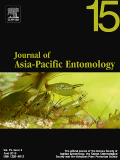
JOURNAL OF ASIA-PACIFIC ENTOMOLOGY
Empowering Knowledge in Asia-Pacific EntomologyJOURNAL OF ASIA-PACIFIC ENTOMOLOGY, published by the Korean Society of Applied Entomology, is a distinguished platform that fosters the advancement of knowledge in the field of entomology, specifically tailored to the Asia-Pacific region. Since its inception in 1998, this journal has been instrumental in providing critical insights into the diverse aspects of insect science, reflecting its commitment to supporting both research and application in a variety of contexts, including agriculture and environmental sustainability. The journal is categorized in the Q3 quartile for Insect Science according to the 2023 rankings, and it holds a respectable Scopus rank of #62 out of 181 in its niche, situating it within the top 66th percentile of its field. With a focus on peer-reviewed research that emphasizes innovation and practical applications, the journal serves as an essential resource for researchers, professionals, and students seeking to deepen their understanding of entomological studies and their implications across ecological and agricultural landscapes.

ZOOLOGICHESKY ZHURNAL
Exploring the intricate web of life through ecology and evolution.Zoologichesky Zhurnal, a prominent journal in the field of Ecology, Evolution, Behavior and Systematics, has been a vital publication since its inception in 1950. Published by MAIK Nauka-Interperiodica in the Russian Federation, this journal has established a notable reputation in disseminating scientific research and advancing knowledge in zoology. With its coverage spanning from 1950 to 2023, and a specific convergent focus during 1982-1983, this journal contributes significantly to the ecological and evolutionary sciences, even though it currently holds a Q4 classification in the 2023 category quartiles, indicating its niche positioning among peers. Researchers and students engaged in the study of biological sciences, particularly those interested in the dynamics of ecosystems, behavior of species, and evolutionary processes, will find valuable insights and original research articles within its pages. While access to this esteemed journal is not open, it remains an essential resource for those seeking to deepen their understanding of zoological sciences.